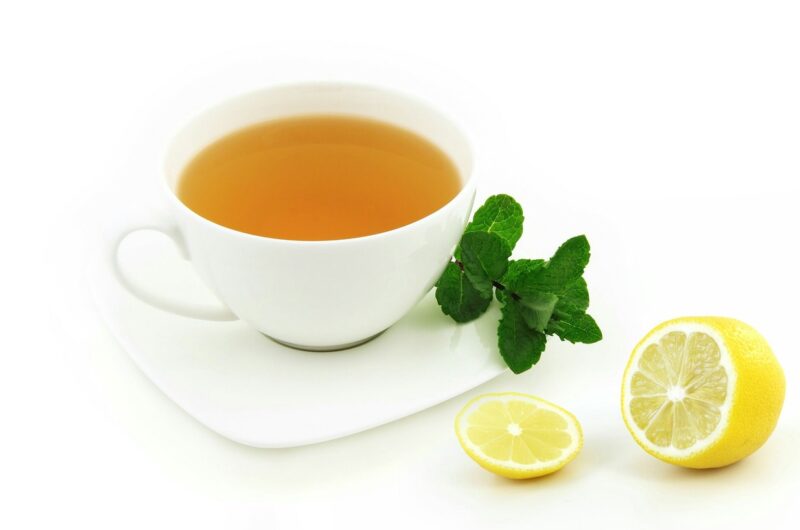Fever grass tea, commonly known as lemongrass tea, is a herbal infusion made from the leaves of the Cymbopogon citratus plant. This aromatic plant is native to tropical and subtropical regions, particularly in Asia, Africa, and the Caribbean. It has long been used in traditional medicine for its many health benefits.
In this article, we will explore the various health benefits of fever grass tea, how it is prepared, its nutritional content, and any potential side effects.
Health Benefits of Fever Grass Tea
Fever grass tea has been used in Ayurvedic and traditional medicine systems for centuries due to its wide range of medicinal properties. Here are some of the key health benefits:
1. Reduces Fever and Inflammation
One of the most well-known benefits of fever grass tea is its ability to reduce fever. This is how the plant earned its name. It contains compounds like citral and limonene, which possess antipyretic (fever-reducing) and anti-inflammatory properties.
When consumed as a tea, fever grass promotes sweating, which helps regulate body temperature and brings down fever naturally. Additionally, its anti-inflammatory properties help relieve symptoms of infections and inflammation.
2. Boosts Immunity
Fever grass tea is rich in antioxidants, vitamins, and minerals that support a strong immune system. The antioxidants help neutralize harmful free radicals in the body, reducing oxidative stress and strengthening immunity.
Furthermore, its antibacterial and antifungal properties help fight infections, making it a great natural remedy for colds, flu, and respiratory issues.
3. Supports Digestive Health
Fever grass tea has been used traditionally to aid digestion and relieve stomach issues such as bloating, indigestion, and gas. It contains compounds that stimulate the production of digestive enzymes, which enhance the breakdown of food and absorption of nutrients.
It also helps relax the digestive tract, reducing cramps and discomfort associated with conditions like irritable bowel syndrome (IBS) and constipation.
4. Detoxifies the Body
This herbal tea has diuretic properties, meaning it promotes urination, which helps flush out toxins from the body. Regular consumption of fever grass tea can support kidney function and liver detoxification, reducing the risk of kidney stones and liver disorders.
By eliminating toxins and excess fluids, fever grass tea may also help with weight management and bloating.
5. Aids in Weight Loss
Many people include fever grass tea in their weight loss regimen because of its metabolism-boosting and detoxifying effects. The tea helps in breaking down fat, improving digestion, and preventing excess water retention.
It also has mild appetite-suppressing properties, helping individuals reduce calorie intake naturally.
6. Lowers Blood Pressure and Supports Heart Health
Drinking fever grass tea regularly may help lower blood pressure levels and promote heart health. The potassium content in fever grass tea helps relax blood vessels, improve circulation, and reduce strain on the cardiovascular system.
Additionally, its ability to lower cholesterol levels and reduce inflammation in blood vessels can help decrease the risk of heart disease and stroke.
7. Relieves Stress and Anxiety
Fever grass tea is known for its calming effects on the nervous system. The tea has mild sedative properties that help reduce stress, anxiety, and even symptoms of depression.
The citral compound in fever grass has been shown to promote relaxation and improve sleep quality. Drinking a warm cup of fever grass tea before bed can help individuals sleep better and manage stress more effectively.
8. Improves Respiratory Health
Fever grass tea has been traditionally used to relieve respiratory conditions such as colds, coughs, and bronchitis. Its expectorant properties help loosen mucus and phlegm, making it easier to clear the airways.
Additionally, its antibacterial properties can help fight infections in the respiratory tract, speeding up recovery from respiratory illnesses.
9. Enhances Skin and Hair Health
Thanks to its antibacterial and antifungal properties, fever grass tea can help clear up skin infections, acne, and other skin issues. The antioxidants in the tea help prevent premature aging by reducing damage from free radicals.
It can also be used as a natural hair rinse to fight dandruff and strengthen hair follicles, promoting healthier hair growth.
10. Helps Manage Diabetes
Some studies suggest that fever grass tea may help regulate blood sugar levels. The compounds in fever grass can enhance insulin function and reduce blood glucose spikes, making it beneficial for people with diabetes or those at risk of developing the condition.
However, diabetic individuals should consult their doctor before adding fever grass tea to their routine to ensure it does not interfere with their medications.
How to Prepare Fever Grass Tea
Making fever grass tea is simple and requires just a few ingredients:
Ingredients:
- 2–3 fresh fever grass (lemongrass) stalks or 1 tablespoon dried lemongrass
- 2 cups of water
- Honey or lemon (optional)
Instructions:
- Wash and chop the fresh fever grass stalks into smaller pieces. If using dried fever grass, measure 1 tablespoon.
- Bring 2 cups of water to a boil in a pot.
- Add the fever grass and let it simmer for about 5–10 minutes.
- Remove from heat and let it steep for a few more minutes.
- Strain the tea and pour it into a cup.
- Add honey or lemon if desired. Enjoy warm or cold!
Potential Side Effects of Fever Grass Tea
While fever grass tea is generally safe for most people, there are a few potential side effects to consider:
1. Allergic Reactions
Some individuals may be allergic to lemongrass, experiencing symptoms like skin rashes, itching, or difficulty breathing. If you notice any allergic reactions, stop using it immediately and seek medical help.
2. Pregnancy and Breastfeeding
Pregnant women should consult a doctor before consuming fever grass tea, as it may stimulate uterine contractions. Similarly, breastfeeding mothers should be cautious when drinking it.
3. Low Blood Pressure
Since fever grass tea may lower blood pressure, individuals with hypotension (low blood pressure) should consume it in moderation to avoid dizziness or weakness.
4. Interaction with Medications
Fever grass tea may interact with certain medications, including blood pressure drugs, diabetes medications, and blood thinners. If you are on any medication, consult your healthcare provider before drinking it regularly.
Conclusion
Fever grass tea, or lemongrass tea, is a nutritious and therapeutic herbal drink with a wide range of health benefits. From reducing fever and inflammation to supporting digestion, heart health, and immunity, this herbal remedy has been cherished in traditional medicine for centuries.
While generally safe, it is important to consume it in moderation and consult a healthcare provider if you have any underlying health conditions.
Whether you are looking for a natural way to boost your health, relax, or detoxify your body, a warm cup of fever grass tea might be just what you need!
References
To support the information provided in this article, the following sources were consulted, including scientific studies, health journals, and reputable herbal medicine references:
- National Center for Biotechnology Information (NCBI) – “Antioxidant and Antibacterial Properties of Lemongrass (Cymbopogon citratus)”
- Journal of Advanced Pharmaceutical Technology & Research – “Therapeutic Effects of Lemongrass on Digestive Health”
- Harvard T.H. Chan School of Public Health – “Herbal Teas and Their Benefits”
- International Journal of Food Sciences and Nutrition – “Diuretic and Detoxification Properties of Cymbopogon citratus”
- American Journal of Clinical Nutrition – “The Role of Herbal Teas in Blood Pressure Management”
- World Health Organization (WHO) – “Medicinal Plants in the Treatment of Fever and Infections”
- Mayo Clinic – “Natural Remedies for Anxiety and Stress: The Role of Herbal Teas”
- Journal of Ethnopharmacology – “Lemongrass (Cymbopogon citratus) and Its Effect on Diabetes Management”
- National Institute of Diabetes and Digestive and Kidney Diseases (NIDDK) – “Effects of Herbal Teas on Digestion and Metabolism”
- University of Maryland Medical Center – “Lemongrass Tea and Its Impact on Cardiovascular Health”
These references provide credible support for the various health benefits, uses, and potential side effects of fever grass tea. Always consult a healthcare professional before incorporating herbal remedies into your daily routine.


















